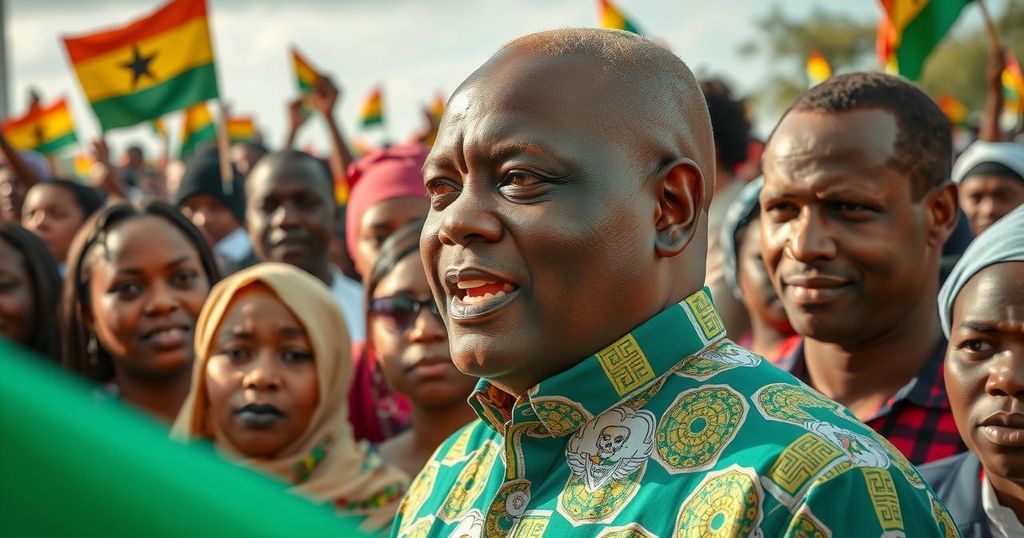John Mahama’s recent electoral victory has placed him under pressure to meet high public expectations for economic recovery, job creation, and the elimination of oppressive taxes. His campaign focused on addressing economic hardships and corruption while promising reforms in government size and public service efficiency. However, skepticism remains regarding his capacity to implement these ambitious promises, given the history of allegations during his previous terms in office.
In the aftermath of his decisive election victory, Ghana’s President-elect John Mahama faces immense pressure to deliver on voter expectations, particularly regarding economic revitalization and job creation. Having defeated Vice-President Mahamudu Bawumia with a significant margin, Mahama’s campaign resonated with a populace eager for relief from economic hardships that peaked in 2022. With promises to reduce government size and eliminate oppressive taxes, he aims to address the escalating cost-of-living crisis that has plagued Ghanaians. Professor Godfred Bokpin emphasizes the need for credible leadership and operational efficiency in public service, suggesting that Mahama’s government must act decisively to fulfill its promises, which include creating a “24-hour economy” and renegotiating IMF loan conditions for more social supports.
Mahama acknowledges the high expectations of the electorate, recognizing that failure to meet these could lead to political repercussions reminiscent of the previous administration’s downfall. Specifically, Mahama pledges action against corruption, proposing the establishment of special courts to prosecute offenders. His potential to implement these reforms is of considerable scrutiny, as past allegations during his previous tenure cast doubt on his commitment to governance integrity. Nevertheless, he asserts optimism for Ghana’s future, stating, “Expectations of Ghanaians are very high, and we cannot afford to disappoint them. Our best days are not behind us; our best days are ahead of us. Forward ever – backwards never.”
Following a prolonged period of opposition, John Mahama’s return to power has raised hopes for economic improvement among Ghanaians. The economic downturn experienced under the previous administration, characterized by a high cost of living and increased unemployment, significantly influenced the electoral outcome. This context outlines the urgency Mahama faces upon taking office, as he must address the critical issues surrounding job creation and the elimination of so-called nuisance taxes that contribute to widespread financial strain among citizens. Consumer sentiment reflects a desire not only for structural economic reform but also for accountability among public officials amid persistent allegations of corruption in the governmental landscape.
In conclusion, John Mahama’s inauguration is marked by high expectations and significant challenges. With a strong mandate from the electorate, he is tasked with reviving the economy, curbing corruption, and creating jobs to alleviate ongoing hardships experienced by the populace. His previous experience as president will be instrumental as he navigates these pressures, particularly as voter sentiment has clearly shifted towards expectations of accountability and effective governance. Mahama’s commitment to addressing these issues will be critical in shaping Ghana’s political and economic future.
Original Source: www.bbc.co.uk






